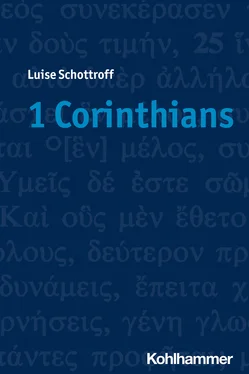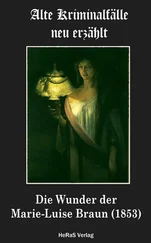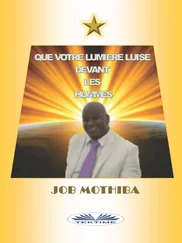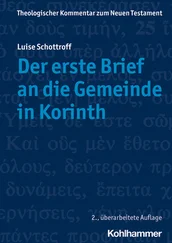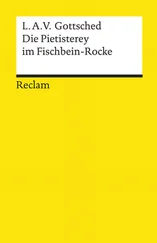The message about the crossis the proclamation about the crucifixion and about the crucifixions foisted on society by those in power day after day. This proclamation exposes the power and testifies that God has put in place its end. The resurrection of the Crucified One has enabled him to become the power that conveys life. When those who believe remember, they consummate anew God’s act of resurrection. The dynamis in 1:18b is at one and the same time the power of God that did not let death have the Messiah and that also transforms those who put themselves into the hands of the crucified and risen Messiah. With this, a group (the believers) is not defining itself as those already saved in the context of God’s coming and God’s judgment. Far beyond that, they have been set free to new life even as they are the waiting ones, rising from the dead, who yearn for God’s salvation for the whole earth (see the basic information before 1:7, 8). Their transformed life is already now an experience of future salvation—that’s the reason for the formulation in the present tense ( sōdzomenoi ). 78What is essential is to ponder the theological core of the Pauline talk about the »we« with reference to the congregation. The »we« are the people who comprise the congregation as it really exists and who in this reality allow the completeness of God’s future to become visible.
Again and again, Paul himself experienced on his own body the threat and the battle to overcome it (see 15:30–34; 4:9–13).
19 For it is written in the Scripture: I am destroying the wisdom of the wise, and the understanding of the seekers I am putting in the wrong. 20 Where are the wise? Where are those who have the say? Where are those who in this world do the talking? Hasn’t God shown the wisdom of the world to be short-sighted? 21 Surrounded by God’s wisdom, the world with its wisdom has not recognized God, Therefore God has granted it to believers to save them through the foolish proclamation. 22 There are Jews who ask God for signs, and Greeks who seek wisdom; 23 and we proclaim the crucified Messiah. Some Jews consider that dangerous, some from the nations consider it unwise. 24 To those who are called by God, whether Jewish or non-Jewish, the Messiah embodies divine power and divine wisdom. 25 For God’s foolishness is wiser than humans are, and God’s weakness is stronger than humans are.
To his critique of the social structures which are to be overcome in the church of God, Paul appends in 1:19–31 a theological reflection on the crucifixionof the Messiah.
Paul begins by quoting Scripture (Isa 29:14). For him, Scripture is not a formal authority that ends debate before it starts. 79For him, as for other Jews, Scripture directly addresses his own present situation, providing instruction for the present (see on 10:1). Isa 29:14 says what happened through the resurrection of the Crucified One: God has set a limit to the »wisdom of the world,« this all-encompassing social and political power (see on 1:17). Paul speaks of this divine activity with strong words. What God does is destroy/ apollymi and invalidate/nullify ( atheteō ; here Paul inserts a more destructive word than in Isa 29:14, krypsō/ to hide) and expose as foolish/myopic ( mōrainō ). These words can be compared with katargeō, which describes the disempowering of all authorities and powers (2:6; 15:24, 26). He asks in 1:20, as after a radical political upheaval (making use of the language of Scripture 80): Where have they remained, the proponents of the wisdom of the world? They are the wise, the educated elite, the linguistically competent authorities ( grammateus —in the Corinthian context, this is not a specific reference to the Jewish scribes; see Acts 19:35). They have the say in critical questions about the organization of the city’s life and commerce. Moreover, Paul uses the Greek word sydzētētēs to designate people who argue in public and in some contexts have the power to render decisions (see a scene of this kind in Acts 17:19, 20). 81Since the time of Augustus public speech was controlled. 82Tacitus reports about a discussion, probably from the year 75 CE, in which the decline of rhetoric is lamented: speech has lost the requisite libertas /freedom, and a rhetorical education leads to discussions only of topics far removed from reality. 83Tacitus wrote this lament only at a later time, when he must have feared less repression.
1:21In the first half of this verse, the interpretation of the prepositional phrase en tē sophia tou theou poses problems. Does it mean that God, on account of God’s wisdom, prevented knowledge? In 1:20 it says emōranen , God caused the foolishness. The en in 1:21a would in that case be interpreted as causal. Another interpretation understands the en as local. The world is surrounded by God’s wisdom, God’s creation, God’s Torah, and still doesn’t know God. This interpretation takes up the thoughts from Rom 1:18–31. 84A definitive clarification is not possible. In 1:21b mōria /foolishness raises questions. Does the message about the cross seem stupid to those who find the way of the cross unnecessary (see 1:18)? In that case it would only be perceived to be foolish. Or is the message about the cross unwise/myopic/dumb/foolish? A look at 1:26–31 helps with the decision. Through the resurrection of the Crucified One, God takes sides on behalf of those who have been humiliated. They are taken for stupid—by those who, as much as possible, denied them chances for education. Actually, many cannot read and write. God had called many uneducated people in Corinth. Paul wants to make it clear that these calls have an inner connection with the resurrection of someone crucified. Therefore, he speaks about the mōria /foolishness of the proclamation. The choice of words is brought about by the negative assessment of the crucifixion (see 1:18). So now Paul takes this positively: yes, God is so foolish as to choose the humiliated, the crucified and the uneducated. So, Paul is playing rhetorically here (and in 1:25) with the word mōria /foolishness.
1:22–24Paul uses here the conceptual pairing Ioudaioi and Hellēnes or Ioudaioi and ethnē . Who is meant by these designations, and how are they to be translated?
Ioudaiosis at this time and far beyond 85an ethnic-regional concept that must be translated by »Judean.« 86This ethnic-regional concept includes the religious dimension. Like other ethnē/ peoples, the Jewish people share, for example, land, blood ties, history, law, religion, custom. Josephus, Against Apion 1.6 can serve as an example from the pertinent sources: 87The Jewish nation is comparable to other nations. The regional sense of the word is also preserved when Jewish people live far from the motherland. This is true of other peoples as well. This finding is consistent with Pauline usage, also in 1 Corinthians. Ioudaioi are an ethnos , even if this does not explicitly occur (but see, for example, John 11:48), for it is associated with being Jewish: circumcision (7:18), the law/ nomos (7:19) and sacrifice/altar (10:18) in Jerusalem. The concept Israel kata sarka (10:18)/the Israel that actually exists, with the temple in Jerusalem, corresponds to the concept of the Jewish ethnos . The followers of Israel’s Messiah who are non-Jewish ally themselves fully with Israel’s God (see below the basic information on those who believe in the Messiah at 1:24), but they do not become Jews, as 1:24 shows. At that time there was no concept that defined a people with respect to a »religion.« A concept of religion that does not include the material-physical realm is modern. 88For Paul and his time being Jewish entails a way of life, a history, the land of Judea and the God of Israel. The question of who is Ioudaios and who is not does not play an institutional role, either internally or externally. 89Only the later fiscus Judaicus , a Roman tax meant to exploit and humiliate Jews, gives birth to Roman investigations about who is actually Jewish. 90Now, how can the word Ioudaios be translated? »Judean« would be historically correct, since an English word like »Jew« and the concept of »Judaism« are primarily associated with a religion. The concepts of »Judaism« and »religion« in the modern sense do not exist at this time. 91However, the continuity of Jewish history over the centuries would be invisible today if the historically correct translation were used. Therefore, the translation »Jew« will continue to be used here. In the German context, with the history of the Shoah, the persecution and murder of millions of Jews by Germans, the continuity of the history of the Jewish people then and now must continue to be visible. 92
Читать дальше
